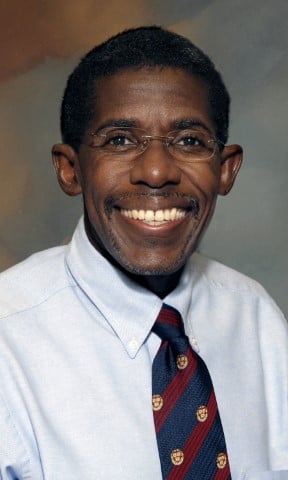
Endocrine News spoke with four of this year’s Early Career Forum speakers to get a sneak peek of their presentations at ENDO 2016 in Boston. In this first installment, we talk with E. Dale Abel, MD, PhD, from the University of Iowa.
Next month at ENDO 2016 in Boston, physicians and researchers just starting out will have the opportunity to gain valuable insight and information from some of the world’s leading endocrinologists in the Early Career Forum. The speakers will be presenting on a number of topics, from tips on getting papers published to developing business acumen.
This prestigious forum for all of the next generation of endocrinologists – graduate students, medical students, post-doc fellows, and clinical fellows – also provides a unique opportunity for basic scientists, clinical investigators, and clinical practitioners to share their ideas and experiences among each other.
But perhaps the most beneficial aspect of the forum is the fact that attendees can look to the forum’s speakers and moderators as experienced mentors, all of whom have tales and tips to share, informed by their own successes and hardships in their respective fields.
E. Dale Abel, MD, PhD, is the director of the Fraternal Order of Eagles Research Center, director of the Division of Endocrinology & Metabolism in the Department of Internal Medicine at the University of Iowa, and head of the Interdisciplinary Diabetes Clinic at Iowa River Landing/UIHC. A Rhodes Scholar and distinguished endocrinologist, he has spent much of his career mentoring early-career researchers, through the Endocrine Society, the American Heart Association, and many other associations and institutions.
Why is it important for your Negotiations in Clinical Research and Private Practice lecture to be at the ENDO Early Careers Forum?
Most endocrine fellows are faced with the daunting prospects of navigating and negotiating contracts for their first professional practice position shortly after the first year of their Endocrine Fellowship. The typical endocrinology fellowship does not provide any formal training in job negotiations. Over the years, I have observed many of the pitfalls that trainees experience in attempting to understand the ramifications of contracts. Also, many trainees do not know which things in a contract are negotiable or non-negotiable. Participation in this workshop will provide attendees with these critical tools.
What can attendees expect to learn from your lecture?
• How to articulate a career vision.
• How to negotiate a starting salary.
• Understanding differences in negotiating a position in a private versus group practice versus academic practice.
• Understanding the differences between base salary and total compensation.
• Understanding how to negotiate for benefits.
How can attending your lecture help further the career of an endocrinologist just starting his or her career?
This presentation will provide attendees with the necessary skills to understand the diverse job opportunities and positions that they may be considering upon completion of their endocrinology fellowship trainees and how to negotiate to ensure that they are fully equipped to succeed.

